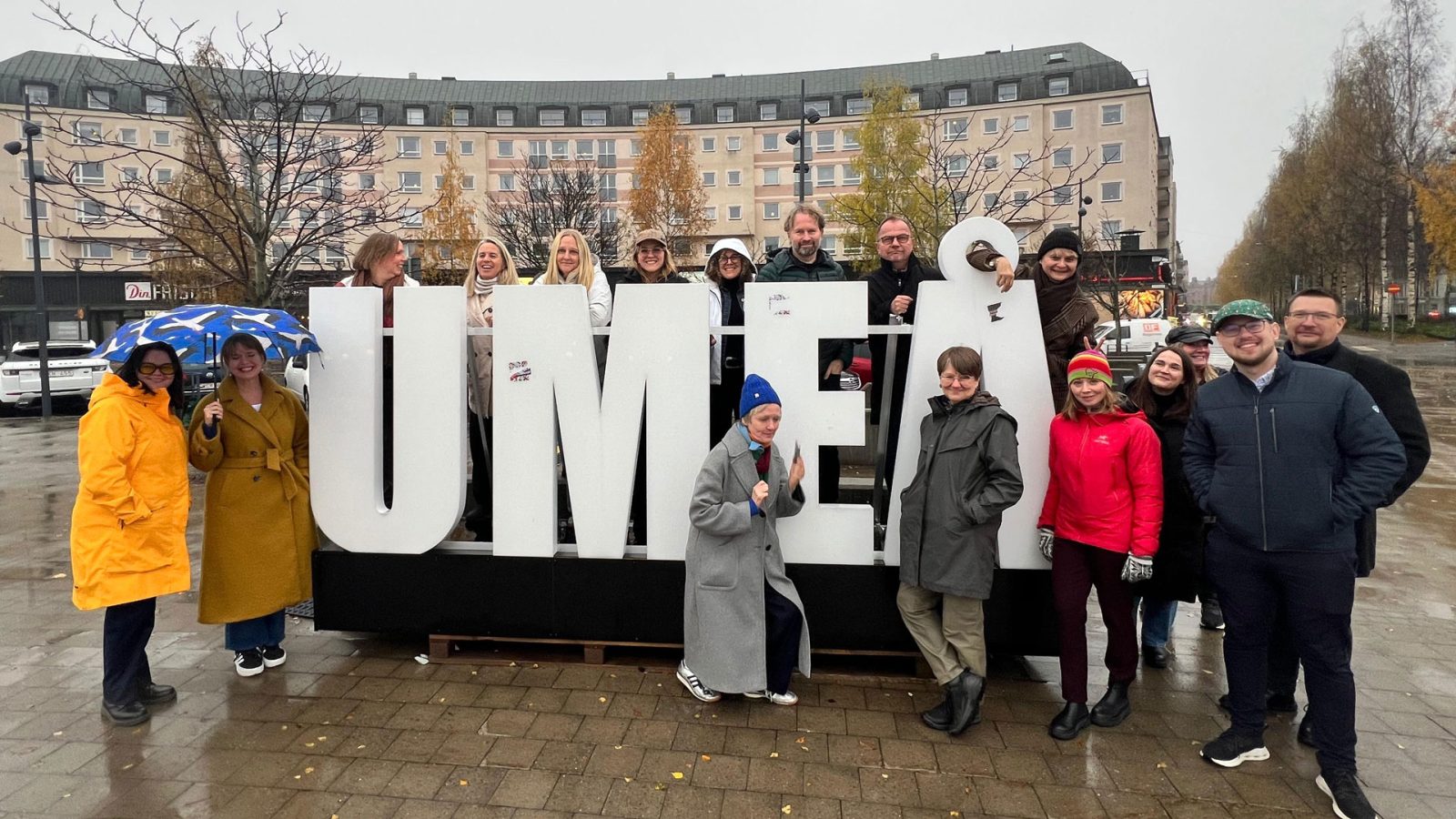My Oulu: Oulu looks to Umeå, where equality and culture drive urban appeal

Umeå is known for its bold approach to challenging power structures and systematically integrating gender perspectives into all aspects of urban development.
During a study visit to Umeå funded by the AURC programme, cities from the Arctic region had the opportunity to explore Umeå’s pioneering work on gender equality, the legacy of its European Capital of Culture year, and its methods of citizen participation. The visit also brought good news – EU-funded cooperation will continue, and the voice of Arctic cities is becoming ever stronger in Europe.
Launched in 2024, the Arctic Urban Regional Cooperation (AURC) programme enables Arctic cities to meet and learn from one another. The network includes 15 local government representatives from Canada, Finland, Greenland, Iceland, Norway, Sweden, and the United States. With long distances and travel often involving multiple flights – even helicopter rides – the joint gatherings are used to their full potential.
The fourth AURC Study Visit brought together around twenty representatives from Arctic municipalities and cities for a study trip to Umeå. During the visit, participants learned about the ways in which the city involves residents in urban planning, and how Umeå’s more than 30 years of gender equality work is visible in practice. The programme also illustrated how the 2014 European Capital of Culture year succeeded in making culture a permanent part of Umeå’s identity and vitality. In other words, it is a legacy-building effort similar to what is currently being explored in Oulu.
Anne Rännäli-Kontturi, Head of International Affairs for the City of Oulu, says that the creative industries incubator eXpression made a particularly strong impression:
“After Umeå’s Capital of Culture year, they launched eXpression, a business incubator for the creative industries, which involves around 100 entrepreneurs or aspiring entrepreneurs every year. The acceleration programme is managed by RISE – the Swedish counterpart of our VTT. In Umeå, they have thoughtfully built a path from hobbyist to professional and entrepreneur on the creative sector’s own terms. Growth and scalability work differently than in the technology or industrial sectors, and the services are designed accordingly”, Rännäli-Kontturi explains.
Umeå also made major investments in cultural spaces before its Capital of Culture year, and the Kulturväven Cultural Centre is certainly worth showcasing. It has become a kind of living room for the people of Umeå, housing a wide range of cultural activities under one roof – from music to food, events to gallery spaces, and from the city library to the Museum of Women’s History.
Equality as a foundation of all urban planning
It is only fitting that a city pioneering gender equality hosts a Museum of Women’s History: equality has become an integral, permanent part of Umeå’s decision-making and organization. The city is known for its bold approach to challenging power structures and systematically integrating gender perspectives into all aspects of urban development.
“Our programme included a bus tour around the city, where gender equality work was demonstrated concretely. We saw how street and public building names reflect equality considerations, and how infrastructure projects address safety from women’s perspectives. After 30 years of work, it’s evident that gender equality truly permeates all aspects of city operations – and the same applies to culture”, Rännäli-Kontturi reflects.
Umeå views culture as part of its social infrastructure – as vital as roads or schools. This was also emphasized by Umeå’s Mayor Marie-Louise Rönnmark in her opening speech:
“Culture is the city’s oxygen – a vital element for democracy and community life”, Rönnmark stated.
Umeå’s approach to maintaining citizen dialogue is equally innovative. Citizen engagement is structured and ongoing through digital mapping, neighbourhood meetings, and the “Dialogue Bike”, which gathers feedback directly in public spaces.
Arctic cooperation continues
How Umeå’s lessons in gender equality and cultural legacy will be applied in Oulu remains to be seen. What is clear, however, is that beyond the European Capitals of Culture “family”, Oulu has other peer networks where experiences, best practices, and project ideas are shared as closely as among family members. The cooperation will continue – a fact that brought joy to the AURC network.
“During the Umeå visit, we received good news from Klara Zolcer Skacanova, representing the European Commission and leading the ‘EU Support to Arctic Policy’ project. Skacanova announced that the AURC programme will continue at least until next September, and preparations for its extension are already underway. In the future, the Arctic Mayors’ Forum will take a more active role in implementing the project – a significant step forward in ensuring that the voices of Arctic cities and municipalities are better heard at the EU level”, Rännäli-Kontturi concludes.